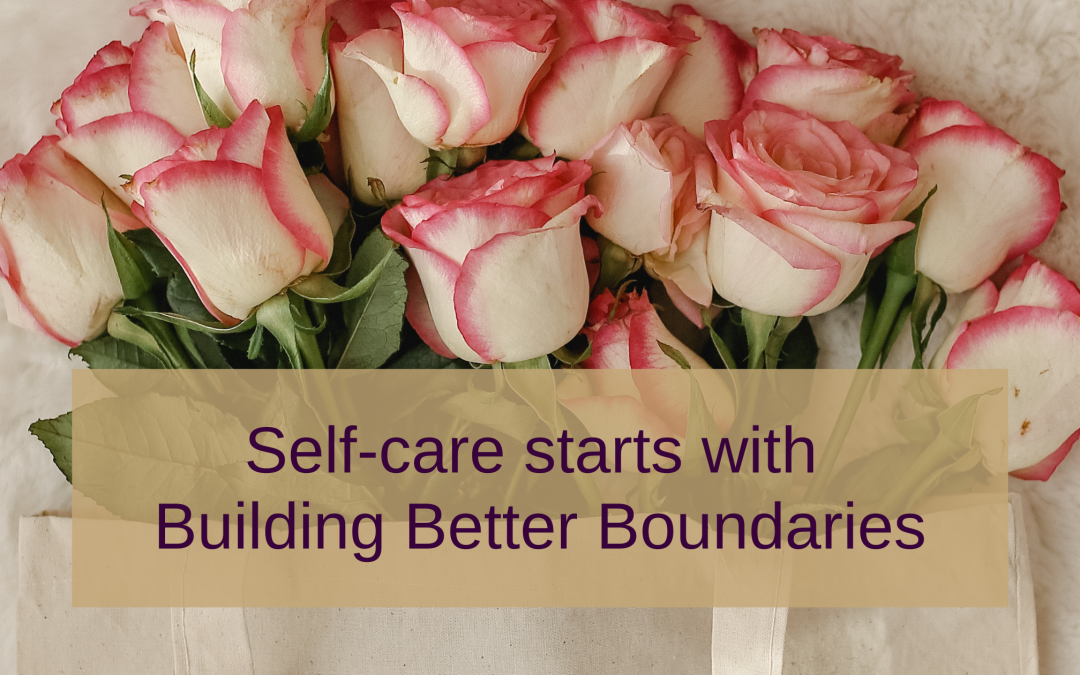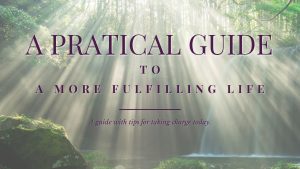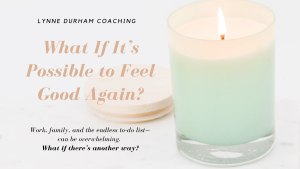The structure of our upbringing often makes it harder for women to be aware of or to establish boundaries. We were traditionally expected to be subservient.
I have been passionate about exploring personal development for most of my adult life, and building better boundaries is an essential part of that quest.
I’d not anticipated having to learn how to establish and enforce boundaries.
And it’s not just me; many people I speak to realise how important boundaries are.
Identifying and setting boundaries is essential for achieving self-empowerment and personal development.
It is unfortunate because we don’t actually WANT to enforce our boundaries.
In an ideal world, our partner, family, friends, coworkers and workplace would automatically KNOW our boundaries and what we do and don’t want.
As most of us don’t live in an ideal world, we may need assistance to know how to identify and communicate our personal boundaries.
We need to know how to Build Better Boundaries.
Failing to recognise this essential & crucial step of self-care leaves us vulnerable to exploitation and manipulation, which blocks our growth and progress.
Enforcing boundaries cultivates a healthy and satisfying life.
This paper shares the negative impacts of blurring work-life boundaries with a hypothesis;
- Blurring of work-life boundaries is negatively associated with employee happiness through increased emotional exhaustion.
- Pluut, H., & Wonders, J. (2020). Not Able to Lead a Healthy Life When You Need It the Most: Dual Role of Lifestyle Behaviors in the Association of Blurred Work-Life Boundaries With Well-Being. Frontiers in Psychology, 11.
Are you aware of your boundaries?
They vary significantly, and we each decide what applies; they may be;
- knowing when you will say no
- deciding after a no that you don’t need to explain or repeat yourself
- knowing you may stand your ground when you agree or disagree with someone or something
- setting a limit on your “at work” time
- setting a limit on your workload
- setting a limit on your ‘with friends” time
- allowing yourself an amount of time for procrastination
- time pursuing personal goals vs professional ones
- self-care rituals
- knowing what information you share with others
- understanding the lines you won’t cross with others in a personal & professional sense
- not allowing someone to disrespect you or mistreat you (or your loved ones)
- withholding finances from those who abuse it
- deciding what you do and don’t want
Knowing our boundaries and modelling them to let others know neutrally and affirmatively is essential.
Boundaries are not walls between ourselves and others; they are how we choose to be happy and live our lives while allowing others to do the same.
Boundaries are guidelines for our loved ones, friends, family, and coworkers.
Through sharing and enforcing our personal boundaries, others know what we expect from them.
Sometimes thought of as selfish, setting and enforcing personal boundaries is an act of self-care and self-preservation which leads to self-growth.
Establishing and maintaining boundaries can be difficult at first because most of us are in the habit of NOT enforcing them.
Once you get started and after focused attention (tips below), prioritising your well-being using boundaries becomes a new habit.
Using your new boundary habit enhances work-life balance, reduces stress, and prevents burnout.
Workplace boundaries
Starting a new boundary habit could begin with establishing your work routine; this may involve knowing;
- Time to start and complete your workday
- Switching off notifications where appropriate
- Choosing how long you’ll postpone a promotion or payrise
- Deciding to be acknowledged for work well done
- Being clear on your workload limits
- Accepting responsibility when relevant and not when it is someone else’s.
You may like to build a library of boundaries; I recommend you begin by choosing one new boundary habit.
There can be a lot of fear or guilt associated with workplace boundaries, and the ideal way to address this is to be clear, calm and aware of your boundaries.
Figuring out how you want to behave ahead of time is essential to remain calm and clear.
Here are some examples you can try to set boundaries in the workplace.
e.g. being handed another pile of work and feeling overwhelmed…
- When they want to give me more work than is reasonable, I will inform them informally and clearly.
e.g. being emailed instructions and requirements after hours (unless previously arranged)…
- I will not respond to emails outside of work and will reply neutrally to let them know if asked.
e.g. someone else is receiving the accolade for a thing I did…
- I will make sure they know I created that result calmly and informally.
Setting boundaries is a way to take care of yourself.
Unfortunately, self-care is sometimes considered selfish, and as they are a form of self-care, so are boundaries.
While self-care is getting more acceptable, it seems we are meant to do it in “our own time”.
This form of self-care involves everyone around us.
Not practising self-care or boundaries leads to overwhelm and burnout, and so, in reality, taking care of yourself is essential.
Some of the common challenges I see us facing when setting and maintaining boundaries are;
- Identifying how and what to choose as boundaries.
- Questioning if we are being selfish in our choice.
- Knowing how to enforce the boundary
If someone constantly repeats something that annoys you – I’d look at what boundary may be crossed. This could be something they say, or do or don’t say or do.
Knowing how to identify a boundary might look like; checking in with yourself and paying attention to what keeps being overlooked or repeated.
And then, by asking yourself;
- Is this in my control? & if so, continue with…
- What do I want to happen?
- How can I make it happen? or
- What do I need to make that happen?
Always remember; boundaries are there for us, and we get to be calm and neutral when notifying others or enforcing them.
When our loved ones, coworkers or others know our boundaries, they can act accordingly; they are informed and no longer wondering why you didn’t respond to that email.
Enforcing boundaries creates more harmonious relationships because each person knows what to expect.
As I mentioned, not holding boundaries was a habit that we had gotten used to. And with focus and practice, we can choose new ones.
As female professionals, it is even more critical for us to be clear and enforce our boundaries.
Knowing this is part of a self-care routine and that in doing so, you are helping yourself and others to live more harmoniously leads to building more empowerment and self-respect.
Consider your boundaries and their positive impact on your personal and professional life.
Click here or below to learn more about the free online course for an easy way to take your first step towards Building Better Boundaries.
Click Here For Building Better Boundaries





